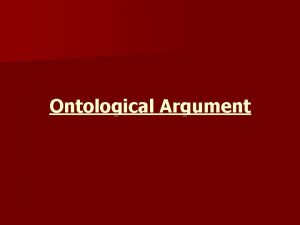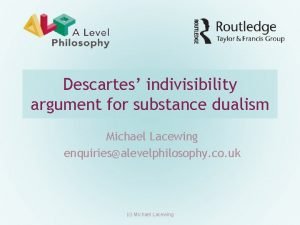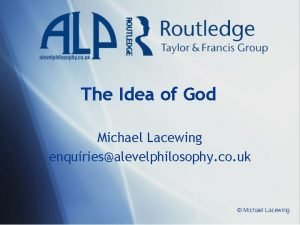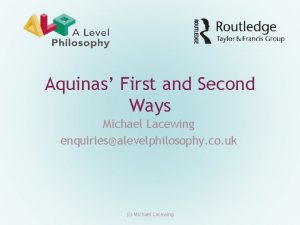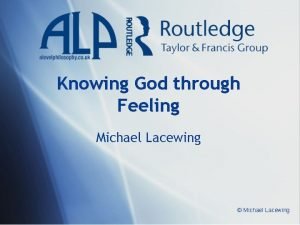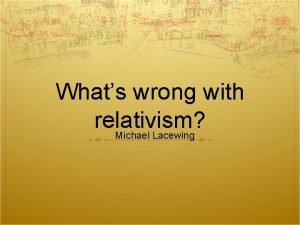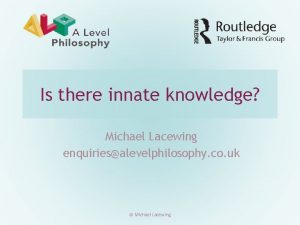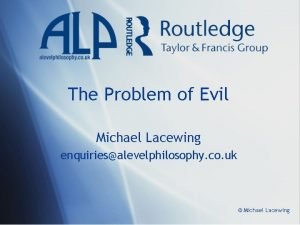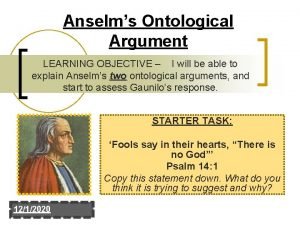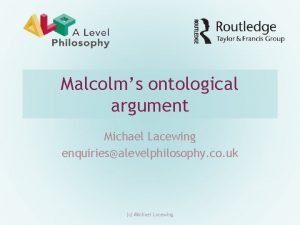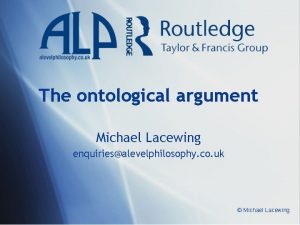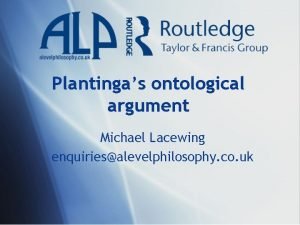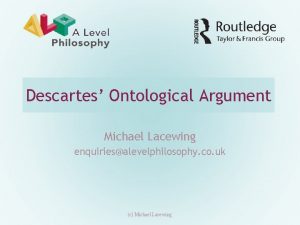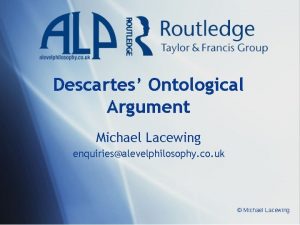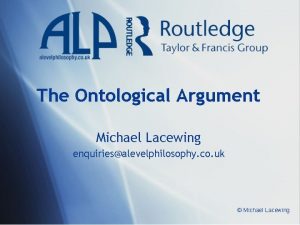Malcolms ontological argument Michael Lacewing enquiriesalevelphilosophy co uk








- Slides: 8

Malcolm’s ontological argument Michael Lacewing enquiries@alevelphilosophy. co. uk

Necessary existence • ‘God is the greatest possible being’ is a logically necessary truth – It is part of our concept of God. • A being that depends on something for its existence is not as great as one that doesn’t. • Therefore, God’s existence cannot depend on anything. • If God exists, then God’s existence is necessary.

The argument • Either God exists or God does not exist. • God cannot come into existence or go out of existence. • If God exists, God cannot cease to exist. • Therefore, if God exists, God’s existence is necessary. • If God does not exist, God cannot come into existence. • Therefore, if God does not exist, God’s existence is impossible. • Therefore, God’s existence is either necessary or impossible.

The argument • God’s existence is only impossible if the concept of God is selfcontradictory. • The concept of God is not selfcontradictory. • Therefore, God’s existence is not impossible. • Therefore, God exists necessarily.

Malcolm on Kant’s objection • Kant famously objected that existence cannot be part of the concept of God – An analytic truth unpacks a concept. The predicate tells you something about the subject – To say ‘x exists’ is not to describe x at all or explain what x is. Existence is not part of the concept of anything. • But this doesn’t apply to necessary existence – To say that ‘God exists necessarily’ is to unpack the concept of God. • If it is part of our concept that God exists necessarily, then we must accept that ‘God exists necessarily’ is an analytic truth – So it isn’t possible that God doesn’t exist.

Objection • Why think it is either necessarily true or necessarily false that God exists? Malcolm argues that it follows from God’s not depending on anything, and having neither beginning nor end. • But if God doesn’t exist, then it is false that God’s existence is, in fact, independent of anything else, because God doesn’t, in fact, exist – Nothing has the property of existing without dependence on anything else. • ‘God exists necessarily’ is not an analytic truth – The analytic truth is ‘if God exists, God exists necessarily’ – This is compatible with God not existing.

Objection • So Malcolm has confused two senses of ‘God exists necessarily’ – There is a distinct form of existence – necessary existence – which God has, a form of existence that does not depend on anything else – It is necessarily true that God exists. • But ‘the concept of God entails that God’s existence does not depend on anything’ does not entail that ‘God exists’ must be true.

Objection • Is the concept of God logically incoherent? • Are the attributes of God coherent? • Does it make sense to suppose a being that exists necessarily if it exists at all?
